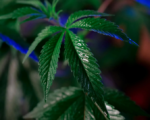The Office of California Governor Gavin Newsom (D) announced Thursday that the state’s sweeping ban on intoxicating hemp products has achieved an impressive 99.7% compliance rate. This comes after a comprehensive inspection of over 11,000 businesses by the Department of Alcoholic Beverage Control (ABC).
Introduced last September, the emergency regulation, which prohibits the sale of hemp-based food, beverages, and dietary supplements containing any amount of THC or other intoxicating cannabinoids, was swiftly approved by state lawmakers. Its primary goal? To safeguard children from exposure to potentially dangerous intoxicants.
A Rapid and Immediate Impact
California’s swift action against intoxicating hemp products has left a mark on both the local business scene and the broader cannabis industry. As businesses quickly complied with the emergency regulations, state officials saw an immediate drop in the sale of products containing synthetic or semi-synthetic cannabinoids like delta-8 THC and HHC, which have been gaining popularity in recent years. These compounds, often manufactured through chemical conversion processes, have been sold with little oversight, presenting potential health risks.
Gov. Newsom’s office highlighted the immediate benefits of the ban in terms of protecting vulnerable consumers, especially children, from exposure to unregulated substances. “Our action sends a clear message: we are committed to maintaining the highest standards of public health and safety,” Newsom said in a statement.

The Role of Synthetic Cannabinoids
Before the ban, intoxicating hemp products, including beverages and gummies, were sold in numerous retail locations, including alcohol shops. While the products were often marketed as safe alternatives to traditional cannabis, independent testing revealed alarming findings earlier this year. Many of these items contained synthetic or semi-synthetic cannabinoids, such as delta-8 THC and HHC.
These cannabinoids are typically created through chemical processes and are often not listed on labels, which means consumers may not fully understand what they are purchasing. The lack of standardized dosage information and inconsistent product labeling further contributed to the uncertainty surrounding their safety. Some products were even found to contain potentially harmful contaminants.
State’s Efforts to Stamp Out Unsafe Products
Following the governor’s emergency regulations, ABC agents moved quickly to seize and remove potentially harmful products from store shelves. Businesses that were found to be non-compliant faced fines and other penalties. This rapid enforcement appears to have paid off, with the majority of California’s retailers now in line with the new rules.
Officials are also focusing on consumer education to help residents better understand the risks of intoxicating hemp products. By raising awareness about the differences between legal, non-intoxicating hemp products and those containing potentially dangerous substances like delta-8 THC, the state hopes to further reduce the risk to public health.
Growing Concerns Over the Hemp Market
The hemp industry has seen rapid growth in recent years, with a wide variety of hemp-derived products flooding the market. While the federal government has legalized hemp-derived CBD products, the rules around other cannabinoids like THC are murky at best. This has created a situation where companies can sometimes push products that aren’t fully regulated and may not meet public health standards.
California’s bold move to enforce tighter regulations has sparked conversations nationwide about the need for better oversight of the hemp market. Other states are watching closely to see how California’s success might influence their own approaches to managing the industry.
Officials have acknowledged that regulating synthetic cannabinoids is a complex issue but remain committed to working with federal agencies to address the growing concerns. Meanwhile, public safety remains the priority, as the state pushes to ensure that only safe, well-regulated products reach consumers.
Maria Garcia is an award-winning author who excels in creating engaging cannabis-centric articles that captivate audiences. Her versatile writing style allows her to cover a wide range of topics within the cannabis space, from advocacy and social justice to product reviews and lifestyle features. Maria’s dedication to promoting education and awareness about cannabis shines through in her thoughtfully curated content that resonates with both seasoned enthusiasts and newcomers alike.








